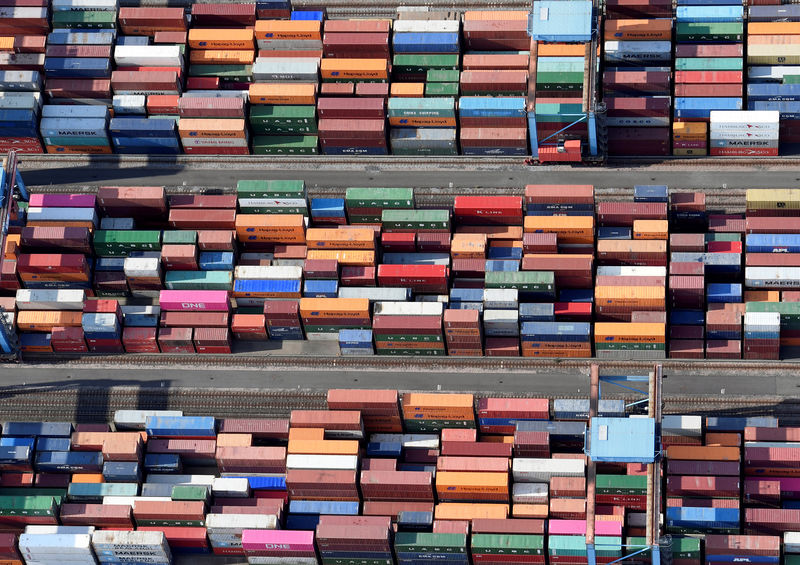BERLIN (Reuters) - German exports rose in July, data showed on Monday, marking an unexpectedly solid start to the third quarter for the engine room of Europe's largest economy and suggesting it may withstand some of the impact of tariff disputes and Brexit uncertainty.
The Federal Statistics Office said seasonally adjusted exports rose 0.7% on the month while imports fell 1.5%. The trade surplus rose to 20.2 billion euros ($22.27 billion) after a downwardly revised 18.0 billion euros in the prior month.
A Reuters poll of economists had pointed to a 0.5% drop in exports and a 0.3% fall in imports. The trade surplus was expected to come in at 17.5 billion euros.
"This morning's trade data brings a very weak ray of sunshine. Nothing more but luckily also nothing less," said Carsten Brzeski, economist at ING.
The stronger-than-expected export figures cut against the grain of a recent run of weak data from Germany, which has fueled concerns that the economy could tip into recession in the July-September period.
Against that bleak backdrop, the European Central Bank is expected to deploy fresh stimulus at its policy meeting on Thursday.
Germany's gross domestic product contracted by 0.1% quarter-on-quarter in the second quarter on weaker exports, with the decrease in foreign sales mainly driven by Britain and below-average demand from China.
Economists generally define a technical recession as at least two consecutive quarters of contraction.
Monday's data showed that in the January-July period, German exports rose by 1.0%, with the strongest contribution coming from markets beyond the European Union, which registered growth of 2.9%.

German Chancellor Angela Merkel said on a visit to Beijing on Friday that the China-U.S. trade war affects the whole world and that she hopes it will be resolved soon.